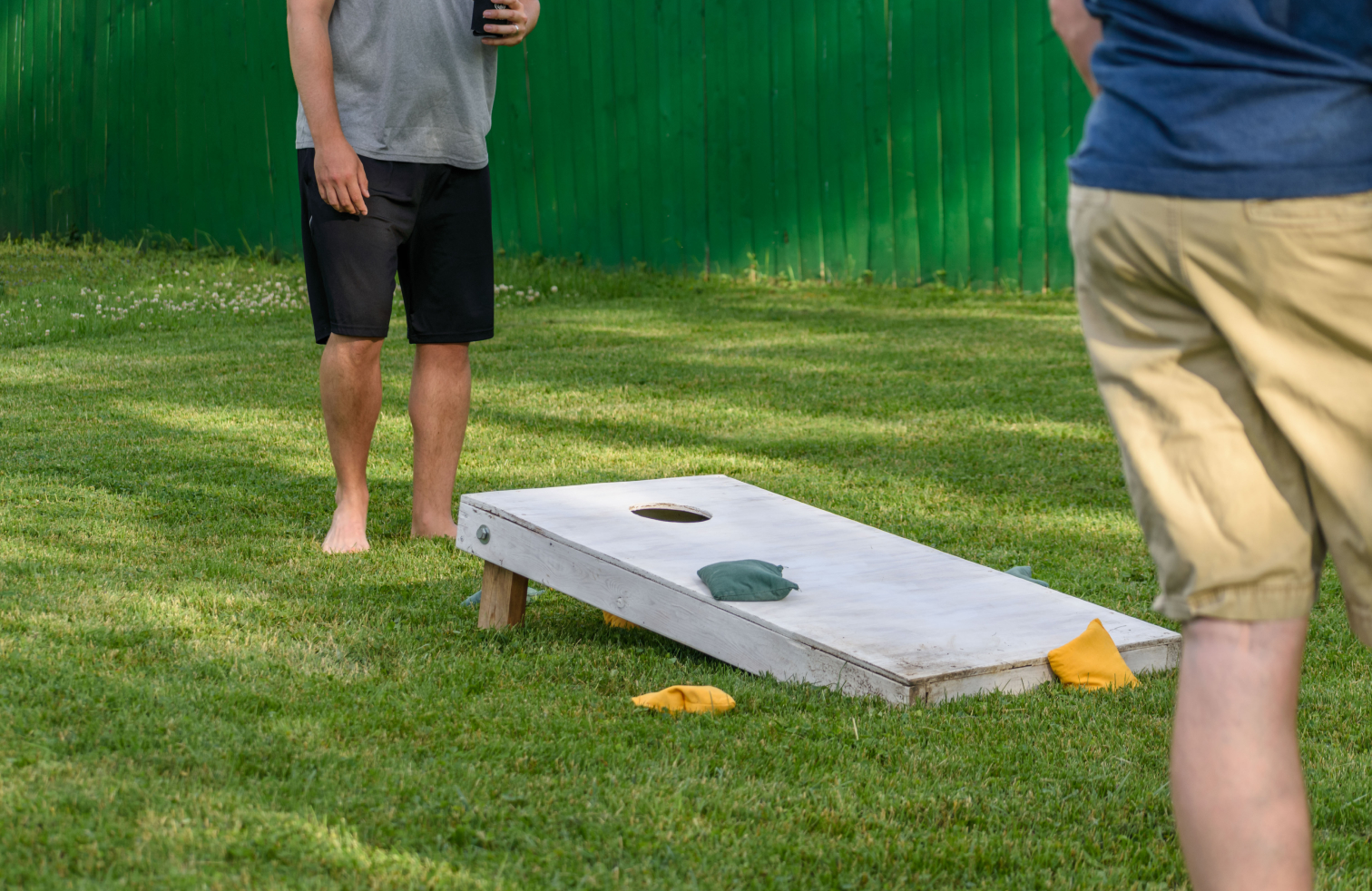Recovery from substance abuse can be intimidating and isolating. Deciding to take care of your addiction can mean leaving a lot of your life behind, including friends you have shared your addiction with. Finding a support system that focuses on building community and creating new connections is essential to your recovery.
Joining a substance abuse group can open you up to new experiences different from your own. Not only do you meet people who understand your struggles, but you can open up and speak freely about your addiction with no fear of judgment.
If you are part of a group or considering joining, here are some activities you can share to try at your next meeting.
The Importance of Substance Abuse Group Activities
The goal of support groups for substance abuse is to bring people with similar struggles together and create a safe space for expression. It can be hard to open up to people you do know, but for some reason, opening up to strangers feels less intense.
In group therapy, you can learn about coping strategies that have worked for others, find out about activities or hobbies you may have never thought to try, and build friendships with people you can talk to about your addiction.
Group topics will apply to anyone struggling with addiction, including how to battle cravings and rebuild healthy relationships with loved ones.
Why Does It Work?
There are multiple reasons why substance abuse recovery groups are effective. For one, they bring together a community that can feel comfortable with one another. Accountability and encouragement are offered throughout sessions, showcasing the progress of everyone’s recovery.
Isolation is a real fear among people with substance use disorder. Whether it’s because you have lost friends due to addiction or have strained relationships with family and friends, sometimes seeking community is not an option you feel comfortable with.
Group therapy eliminates the fear of standing out because you are all there for the same reason. You can also find role models in the group who have been on the recovery journey longer and gain their wisdom.
Where Can You Find Group Activities?
When you go through the recovery process, you will work with the recovery center staff to develop your perfect recovery plan. This might include medically-assisted therapy (MAT), individual therapy, or group therapy. Most treatment centers, such as Soba Recovery Center, offer group therapy to people undergoing both inpatient and outpatient services.
Emotional Health Group Activities
Group therapy activities will have a wide range of topics with unique goals. Not every activity will be your favorite, but others might stick, and you’ll find yourself practicing them on your own.
When dealing with addiction recovery, it is important to check in with yourself and see how you are doing mentally and emotionally. Substance abuse group therapy activities can be aimed at helping you to discuss your emotional health and find ways to improve your overall well-being.
Discussing Triggers
Everyone has different triggers. Discussing them in your group can be helpful in learning about the different ways people have learned to cope. Not every method you try will work for you, so it’s good to learn about various coping skills, including anger management skills, communication skills, and stress management.
Through this activity, you can recognize patterns in your addiction treatment. This might help you learn how to take yourself out of situations that might trigger you before anything ever happens. This is one of the first steps in harm reduction and prevention.
Sharing Your Fears
Every group member takes a piece of paper and writes down what they fear. It can be anything from dealing with their addiction to fears they have in their everyday life. What you write down does not have to be shared publicly unless that is something you’re comfortable with.
Take these lists of fears and put them into a box. Have the group leader read off the lists one by one anonymously. What you are sure to find will be that some of you have similar fears. This helps to recognize that you are not alone in these fears; it’s just that everyone deals with things differently.
Talk About Your Journey So Far
One of the biggest struggles with addiction is feeling isolated and alone. Sharing your journey within your group will help others to feel more comfortable. In this exercise, you can all share one bad thing that has come from your journey to sobriety and one good thing that has come from it.
Shame is often associated with addiction recovery, but if you are all sitting in a room dedicated to recovery, you should be proud of how far you’ve come. You are deciding to turn your life around, and others around you are supporting you.
Share Your Favorite Memory
This activity allows people in your group to lighten up and share something that makes them happy. This can be a memory from childhood, about a good day you had at school or work where you felt accomplished, or the moment you met someone that changed your life.
With addiction comes bouts of depression, anxiety, and other mental illness struggles, and staying positive can be difficult. Sharing memories that bring you joy can brighten the mood in group therapy and remind everyone why they are there.
Sharing Positive Affirmations
Until you’ve done them, you might be hesitant about how well positive self affirmations work. By speaking highly of yourself, you can help to motivate yourself through your recovery journey.
In this group activity, you should write down the affirmations you say to yourself when you’re struggling. Share in a circle what these affirmations are and how they’re intended to help. Who knows? You might learn about new ones that could benefit your daily life.
Self-Care Group Activities
Properly taking care of yourself while in addiction recovery is essential. During the worst parts of addiction, hygiene, physical and mental health, and nutrition often decline. It can be difficult to take care of yourself, but it is so important to get back on track during your recovery journey.
Talk About Your Self-Care Routine
Everyone needs a self-care routine, no matter what you think! Self-care is not just about taking yourself out to nice dinners or buying yourself something when you want it. Self-care is all about doing things that are good for you, and that will help you to be more successful in your life.
Share with the group what it is that you do for self-care. Through this, you might find new habits to pick up on that will benefit you. Your self-care routine might include:
- Waking up at 7 a.m. and going on a brisk 10-minute walk.
- Coming home and making yourself coffee and breakfast.
- Reading or journaling while you drink your coffee.
- Practicing yoga for 10 minutes before heading off to work.
Make a List of Bad Habits You Want to Break
Speaking of new habits… it’s time to get rid of your bad ones. Write down a list of habits that you want to break and partner up with someone in the group. (If the group is small, share with everyone.)
This person(s) will be your accountability partner and will check in with you throughout the week or at each meeting to see how you’re doing. Check off habits that you’ve broken as you go. It’s almost more satisfying and encouraging to break them when checking them off a list!
Share Your Favorite Recipes
For this activity, you can create a cookbook with your substance abuse group members. Nutrition is part of self-care, but finding the time and energy to develop new recipes can be difficult.
Have everyone in your group bring in two of their favorite recipes: one that is savory and one that is sweet. Put them together in a binder or a shared online document, and try them for yourself. Maybe cooking will become your new hobby!
Physical Group Activities
Exercising and moving your body should be a refreshing part of your recovery. Keeping up with your physical health during active addiction is not easy, but starting on your own can be intimidating. That’s why many people have gym buddies to help motivate them and keep them on track.
Practice Meditation
Stress and anxiety are common for those undergoing addiction recovery. You might find that meditating for the first 10 minutes of every group therapy session sets the mood for the rest of the meeting.
Put some soft and peaceful music of white noise in the background. Have everyone close their eyes and focus on their breathing. Let your mind relax and concentrate on how your breath feels coming in and out of your body. When you’re done, allow people to share how the experience made them feel before moving on.
Start a Hiking Group
You may find people in your substance abuse group who want to spend more time outdoors. Start a hiking group within your substance abuse group. Set up times and places to participate in group hikes or even group walks.
If you aren’t interested in solo hikes, this might be the perfect opportunity for you. Spending time outdoors is good for your mental and physical health. Finding a hobby that brings you joy is essential during recovery, and doing it with friends with similar goals can make it all the better.
Artistic Group Activities
Expression and creativity can free a person from the hurt they carry inside. Art therapy is a form that is used for people of all ages. Anyone can be an artist or use art as a way to help them cope and grow. Find a time, maybe even as you discuss other topics, to sit around and create together.
Paint Night
Painting is a great way to express yourself because there are no rules. Everyone can get a piece of paper or canvas and paint together as they tackle other topics. You can even have it so every time you paint; there is a prompt that everyone can follow.
Share with the group your finished product at the end of the meeting. Find a space where you can hang up all of your pieces so that they can remind you of your strength and creativity the next time you go for group therapy.
Vision Boarding
Vision boarding is a fun activity that can be done in group therapy. Everyone brings in a posterboard and some old magazines. Use these tools, along with stickers, markers, paint, colored pencils, or stamps, to map out what you want the next year of your life to look like.
Keep these vision boards on display throughout the next year to remind you of your goals.
Create a Playlist of Shared Music
Creating a shared playlist is an easy and relaxing activity you can all participate in. Everyone in your group is bound to have vastly different tastes in music. Music is its own therapy for people, so sharing your favorite songs can be really cathartic.
Have someone in the group create a playlist of all of the songs loved by your group members. You can share it so everyone can access it and have it playing in the background of your next meeting.
Finding Help With Soba
Group therapy is essential. Finding people you can relate to and building a safe community to grow in can help your recovery journey immensely. Soba Recovery Center of San Antonio, Texas, can help you get started on your journey today.
After going through an intake process with staff from Soba, a personalized treatment program will be created to give your recovery the best chance. Group therapy is likely to be a part of that treatment plan.
Get help today and see just how bright your future can be!
Sources:
1 Groups and Substance Abuse Treatment | NCBI
Emotional and Social Loneliness in Individuals With and Without Substance Dependence Disorder | NCBI





